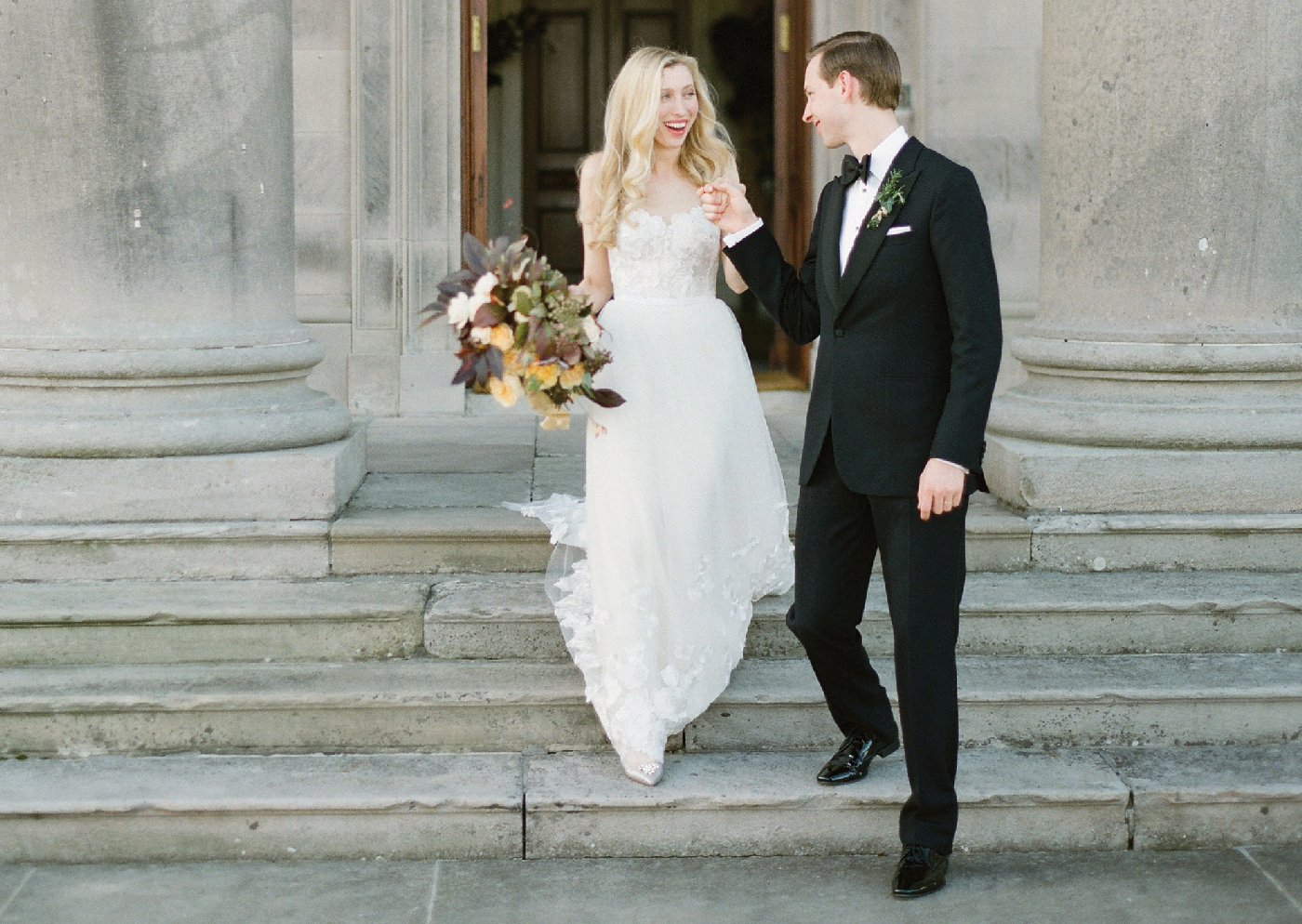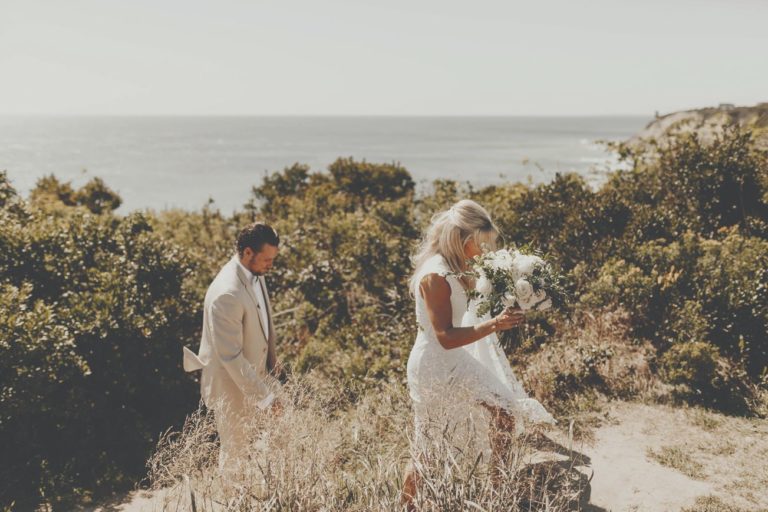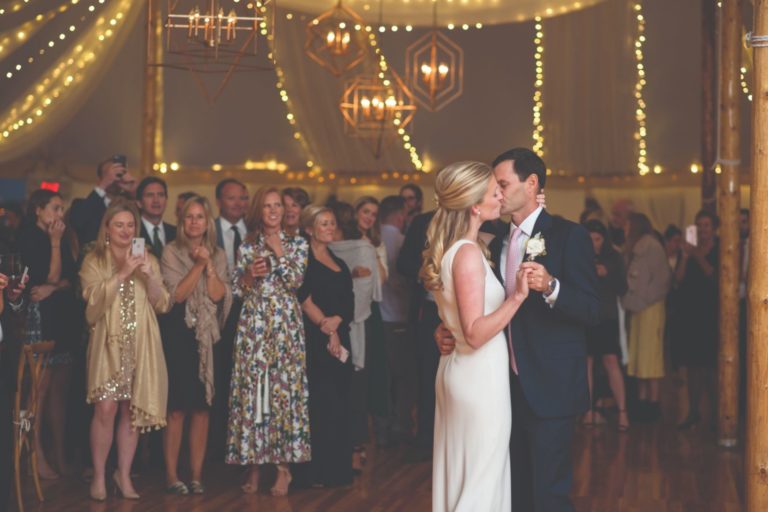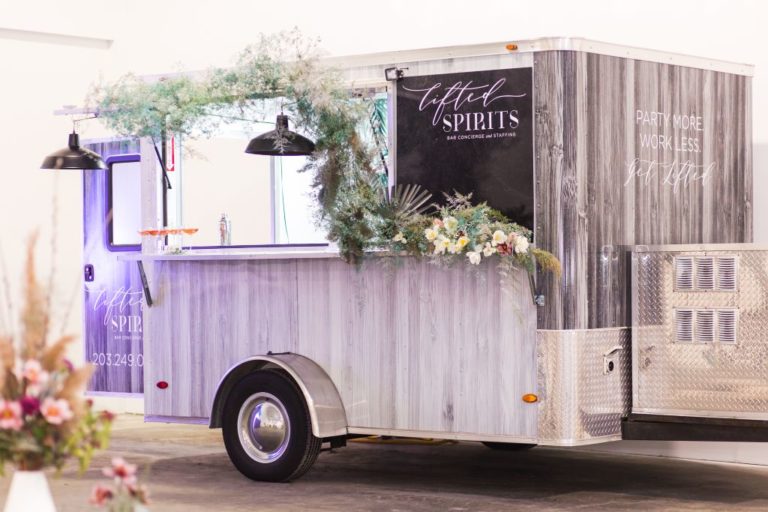The second you get engaged, the questions start: “When and where is the wedding?” “Am I invited?” “Have you shopped for a dress?” Take a deep breath, and know that you can—and should—take some time to just enjoy being engaged. But when you are ready to dive into wedding planning, here’s where to start.
 1. Make a Budget
1. Make a Budget
Money conversations are always hard. But without knowing what you have to spend, you can’t even begin to start planning, says Jes Gordon, creative director and owner of New York City-based properFUN Events. (According to The Knot, couples spent almost $42,000 in Connecticut and more than $57,000 in Westchester on their wedding in 2015.) Talk to your partner about how much the two of you can afford, and if your parents have offered to contribute, get a realistic figure from them.
2. Name the Date
You might have always dreamed of a spring wedding, or decide you want to marry on your anniversary. Or the chosen day could be as practical as wanting to get married within the next six months. Either way, it’s a good idea to talk to your families about any potential conflicts before setting it in stone. Remember, since summer and early fall months are the most popular for weddings, you’ll need to plan ahead to get the best venues—or be flexible on the exact date.
3. Get a Guest Count
Sure, you’d love to invite every friend, cousin and co-worker to watch you tie the knot, but that’s probably not realistic. Talk to your partner and immediate family about who they’d like to invite and put together a preliminary guest count. With a ballpark number, you’ll be ready to start looking at venues.
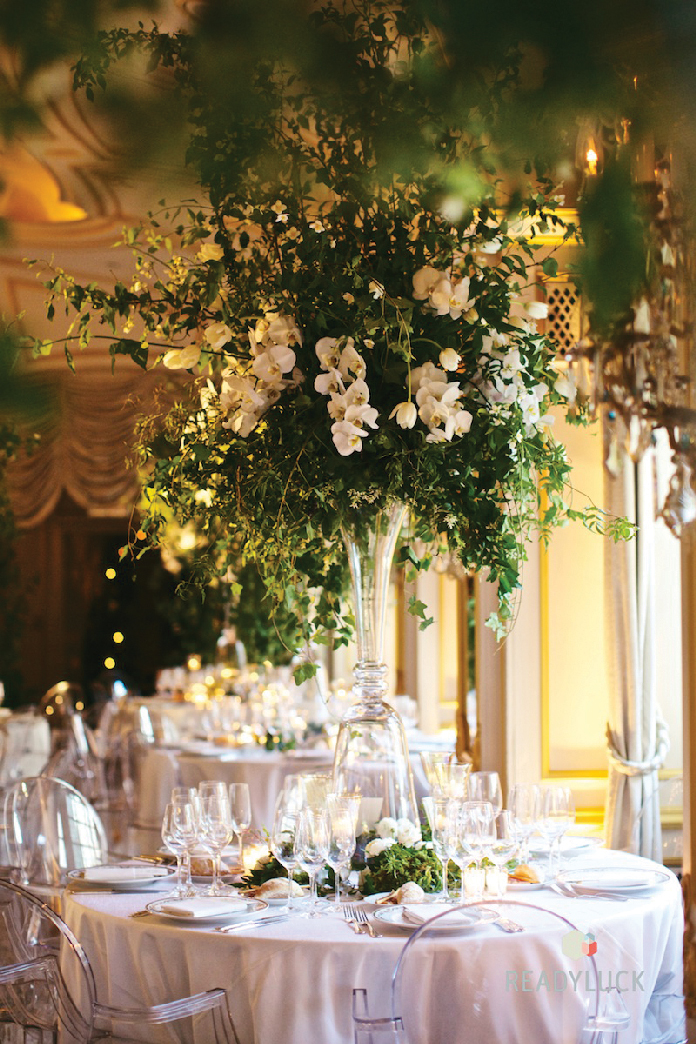 4. Book Your Venue
4. Book Your Venue
Many locations are booked a year or more in advance so decide what type of setting you want early (outdoor garden, hotel ballroom, country club, farm or gallery space, to name a few). The size of your guest list should help narrow it down. Next, decide what best fits your vision and who will be attending. “If you have many elderly guests, the walk-up loft is probably not the right choice,” says Gordon. Can you deal with the uncertainty that comes with an outdoor wedding? Do you want the more casual vibe, and portable bathrooms, that come with a rustic barn setting? Consider also the additional vendors needed for certain venues. “Hotels are a great location when you want to use what exists,” says Brian Worley, co-owner of YourBash!, a Santa Monica, CA-based wedding and event production company. “A blank space gives you more freedom to be creative, but tends to cost more money.”
5. Consider a pro
Most couples have never hosted a party as big, important and complicated as a wedding. That’s where a full-service wedding planner comes in. “Most brides that initially start off planning their own wedding realize that it can be a full-time job,” says Worley. If you want to show up the day of your wedding with all the details taken care of, a planner is right for you. If it’s a smaller affair and you have the time and energy to address all the details, you might choose to DIY. Most experts say while a planner is an additional cost, he or she can help you stay on budget. “Planners ask the questions you don’t know to ask,” says Gordon. “Many couples run into unexpected expenses because they didn’t have the knowledge to prevent it.” Not to mention, a planner’s relationships in the industry can pay off. “We use many of the same vendors over and over, so we can leverage those relationships to help make a budget go further,” says Worley.
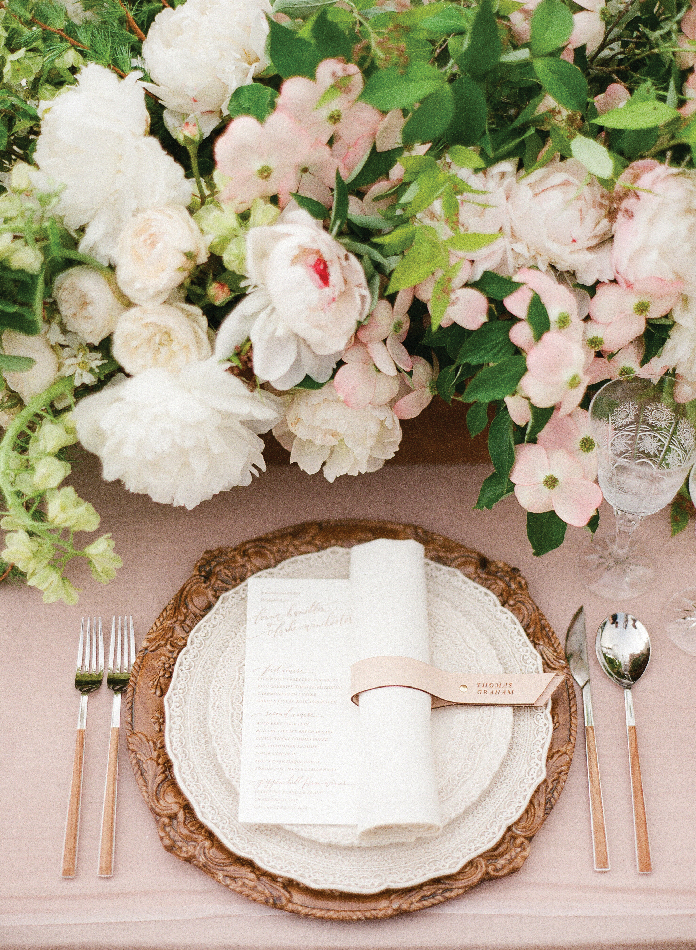 6. Curate Your Style
6. Curate Your Style
Decide a color scheme by considering your venue’s existing décor and pick two main colors that you love. If you haven’t already started your wedding Pinterest board, now’s the time. Collect images that work with your venue and speak to you—then narrow them down to recurring themes and ideas. If you’re getting bogged down with details, think about how you want your wedding to feel, rather than how it looks, suggests Gordon. Are you leaning towards a traditional feel, an over-the-top romantic vibe or modern minimalism? Once you settle on a style, deciding the flowers, the cake or the dress will be much easier, and the event will feel cohesive.
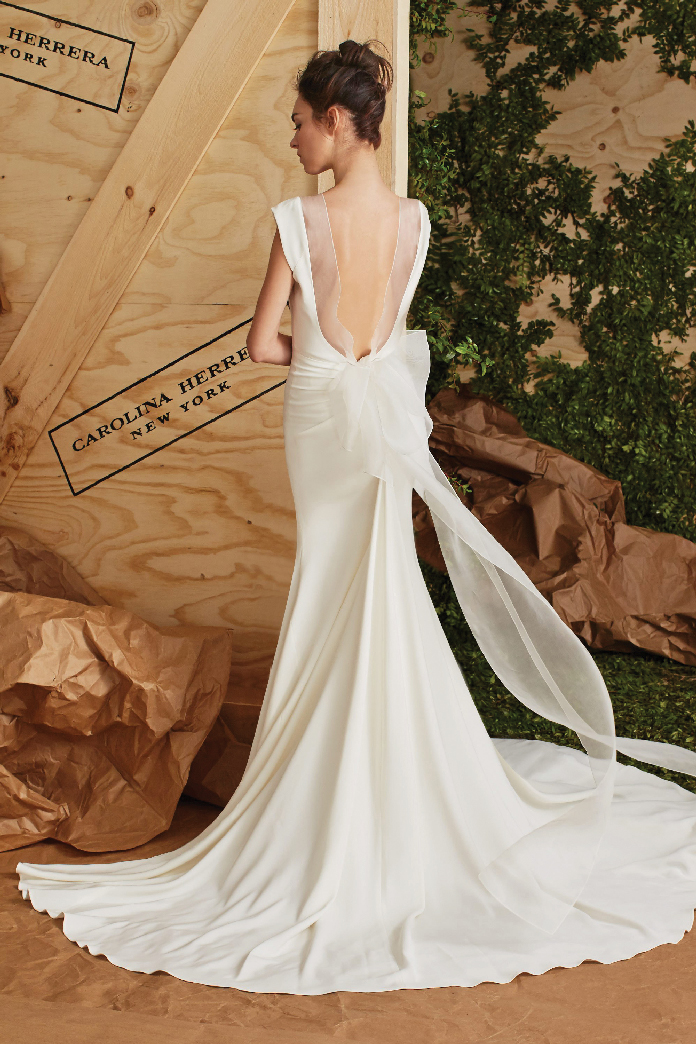
7. Buy Your Dress
Unless you find a sample or an off-the-rack gown, wedding dresses are custom made. That’s why experts recommend ordering them nine to 12 months before the wedding, so there’s plenty of time for alterations. How do you choose a style and silhouette? Take the time of year and theme into account—for example, a strapless A-line lace dress is perfect for a romantic summer garden wedding, while an embellished satin ball gown suits a formal fall affair. Look to the runway for inspiration. Top trends for 2017 include everything from capes (Marchesa) to built-in corsets (Oscar de la Renta) and even bridal pants (Elie Saab). In the end, it should come down to what makes you feel your most beautiful and confident.
8. Ask the Bridal Party
Being in a wedding is a big commitment, so the sooner you give your favorite people a heads up, the better. This is especially true if you have multiple friends getting married in the same year. (Bonus: With your wedding party set, you’ll have more time to start planning that bachelorette weekend!)
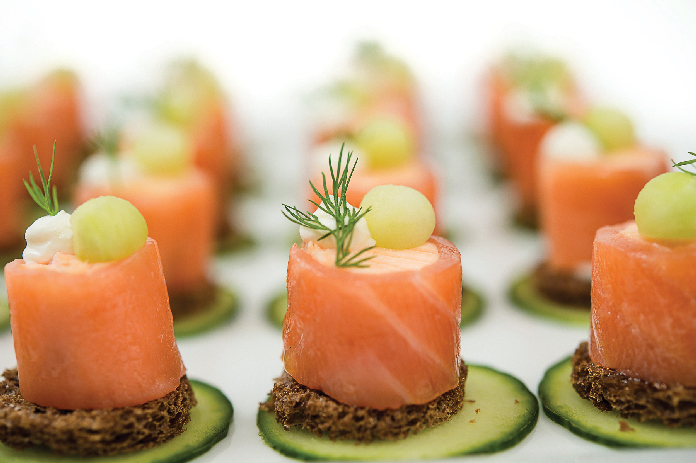 9. Pick a Caterer
9. Pick a Caterer
“The first thing you need to focus on is what type of reception you want,” says Jim Kirsch, president and CEO of Abigail Kirsch wedding and event caterers with seven exclusive venues in the tri-state area, including Tappan Hill Mansion in Tarrytown, NY, and The Loading Dock in Stamford, CT. A sit-down meal, buffet or passed hors d’oeuvres all have a different feel—and a different cost. And while you may be dreaming about the food, it’s just as important to find a caterer who caters to you. “Look for one who fits your style, listens to your preferences and is willing to work within your budget,” says Jeffrey Selden, managing partner of Marcia Selden Catering and Event Planning based in Stamford, CT, and NYC. Before you decide, ask your venue if they have a preferred vendor list—there may be a fee if you go with a vendor who isn’t on the list, and the process will likely go more smoothly if you select someone who has a rapport with the venue.
10. Book the Photographer
Like venues, many top photographers can be booked up to a year out, which is why you should start your research early. Use Pinterest, Instagram and magazines. “If a photographer’s style moves you, and you see consistent images from events similar to yours, it’s likely a good fit,” says KT Merry, a Miami, FL-based photographer. Besides reviewing online portfolios, set up a meeting (by phone or in person) to make sure you’re on the same page. After all, “the photographs will become how you relive that day as a couple,” says Merry.
Photographs by: The couple and the ring: KT Merry; Salmon roll: Andre Maier Photography; Table shot with centerpiece: photo by Ready Luck (provided by Jes Gordon); Drinks: Marcia Selden Catering & Events; Place setting: KT Merry

